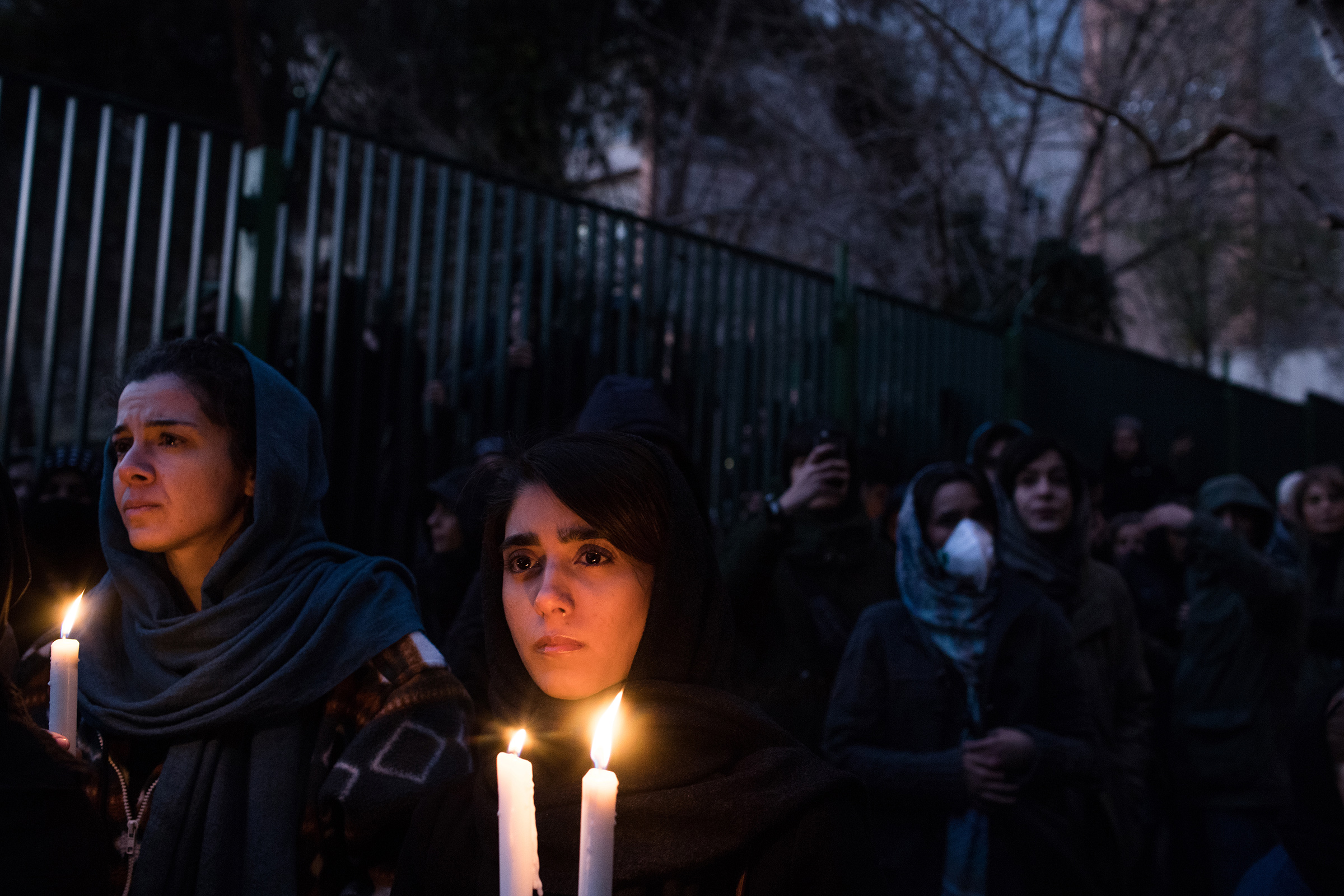
It took three days for Iran to admit the truth. Hours after it launched missiles at bases in Iraq that house U.S. troops on Jan. 8, a Ukraine International Airlines passenger jet bound for Kyiv crashed shortly after taking off from Tehran, killing all 176 on board. Iranian officials suggested the cause was technical failure but backtracked on Jan. 11, saying “human error” had led its military to shoot down the plane and blaming “U.S. adventurism” for creating the situation. Angry and distrustful, Iranians poured onto the streets as footage circulated of protesters chanting, “Death to the dictator.”
Sentiment Swing
Days earlier, millions of Iranians had gathered in grief and rage after a U.S. airstrike killed Iranian commander Qasem Soleimani on Jan. 3. But the feeling shifted when it seemed Tehran was trying to cover up its role in the crash. “We are not citizens. We never were,” one of Iran’s most popular actors, Taraneh Alidoosti, wrote to her nearly 6 million Instagram followers on Jan. 12. “We are captives.” That night, police reportedly fired live ammunition at protesters in Tehran, injuring several. (The police deny firing the shots.)
Renewed Protests
The period of national unity that followed Soleimani’s death marked a rare moment of reprieve for Iran’s leadership, which was rocked in November by the largest antiregime demonstrations since the 1979 revolution. Sparked by a domestic gas-price hike amid crippling U.S. sanctions, that unrest prompted a nationwide Internet blackout during which security forces killed more than 300 demonstrators, according to Amnesty International.
Damaged Trust
As the U.S. sanctions bite, lower-income Iranians in traditionally pro-regime areas have joined protests normally populated by the middle classes and students. But after the crash, critical voices emerged from even less likely quarters. Resigning from the state broadcaster, a journalist asked viewers to forgive her for “the 13 years I told you lies.” The editor in chief of the right-wing Tasnim news agency also blamed “officials who misled the media,” tweeting, “We are all ashamed before the people.” With President Trump warning that the “world is watching,” Iran’s next steps will be under the spotlight both at home and abroad.
More Must-Reads From TIME
- The 100 Most Influential People of 2024
- The Revolution of Yulia Navalnaya
- 6 Compliments That Land Every Time
- What's the Deal With the Bitcoin Halving?
- If You're Dating Right Now , You're Brave: Column
- The AI That Could Heal a Divided Internet
- Fallout Is a Brilliant Model for the Future of Video Game Adaptations
- Want Weekly Recs on What to Watch, Read, and More? Sign Up for Worth Your Time
Write to Joseph Hincks at joseph.hincks@time.com